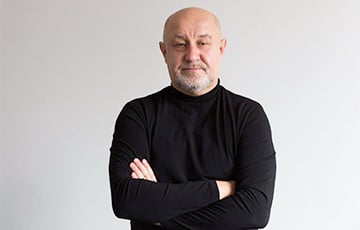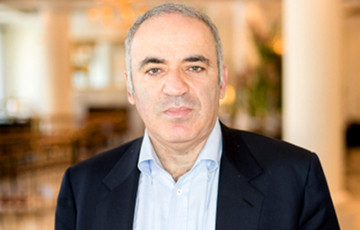‘Chinese Comrades Call On Lukashenka To Release Political Prisoners And Improve Relations With Poland’
16- 28.08.2024, 15:51
- 28,780

PHOTO: CHARTER97.ORG
There is no need to reinvent the wheel to release prisoners of conscience.
How to release Belarusian political prisoners? A Radio Racyja journalist spoke about this with the coordinator of the European Belarus civil campaign, former prisoner of conscience Dzmitry Bandarenka.
— Dzmitry, the issue of releasing political prisoners is the number one problem for Belarusian society. But this issue, as it turns out, is difficult to resolve. Do you agree with me?
— Of course. Because now the world is concerned not only with the issue of releasing political prisoners, but first of all, especially in our region, the war in Ukraine. And it is very difficult to separate these issues today. There can only be some kind of comprehensive solution to the problem.
— In Morocco and Thailand, the anniversaries of members of royal families are often accompanied by amnesties, which is part of the cultural traditions of these countries. For example, in Morocco in 2019, in honor of the twentieth anniversary of the king's reign, more than four thousand people were released under an amnesty. This is a symbol of the monarch's generosity. Why doesn't Lukashenka use this practice? For example, he had thirtieth anniversary of holding the presidential stool. He will soon be 70 years old. Why not follow the principle of what is happening in Morocco and Thailand? Why not show complacency?
— Thank God that Belarus is not a monarchy. But if we talk about Thailand and Morocco, these countries have a monarchy tradition of hundreds of years (maybe thousands). And the monarchs in Morocco and Thailand are, as a rule, highly educated people for whom state and national traditions mean something. And Lukashenka is just a petty dictator, the head of a state farm, plus a pathological personality. He is a mentally ill person who finds it very difficult to take any steps to free people whom he considers his personal enemies.
— The appeals of the UN Special Rapporteur on Belarus Anais Marin on the release of political prisoners, as she said, remained unanswered. What do you say about this?
— I believe that today's UN Special Rapporteur on Belarus is a very responsible, very hardworking person, her work was not in vain. We know that on the sidelines of the SCO, where Lukashenka's regime was recently drawn in, a meeting took place between the Belarusian dictator and the head of the United Nations, Guterres, who is himself Portuguese. And it is known that during this conversation, Guterres conveyed to Lukashenka the information from this report of the UN Special Rapporteur on Belarus. Although the Belarusian authorities denied it, it is a reliable fact that this information was conveyed.
We know that today there are a minority of democratic countries on planet Earth. There are about 250 countries in the world, and today there are fewer democratic ones than non—democratic ones. There is a problem of wars in Africa, there is a problem of drug trafficking, a problem of drug wars, violations of women's rights all over the world. And Belarus against this background is only one of many countries where human rights are violated en masse. But on the other hand, today all international structures, including the United Nations, know that there is a dictatorship in Belarus and that there are political prisoners. And this issue is still under control. I think it will be resolved.
— I think that Sviatlana Tsikhanouskaya also talks about releasing political prisoners where she can. Undoubtedly, because she herself has a problem: her husband is in a reinforced-security regime colony. But there are no results yet. Why?
— Because there is a certain self-confidence and unwillingness to use the experience that other people who were political prisoners themselves, who fought for the release of political prisoners, already had.
Unfortunately, Tsikhanouskaya did not immediately start advocating for sanctions, but today we are seeing a situation where Tsikhanouskaya herself seems to be saying the right things, but representatives of her various structures, organizations affiliated with Tsikhanouskaya's office, advocate for the lifting of sanctions and for not imposing sanctions for human rights violations in Belarus. For example, Tsikhanouskaya's adviser Milinkevich, who has been a professional whitewasher of the regime for decades. For example, Harbunova, who is responsible for political prisoners issues in Tsikhanouskaya's office. For example, Tatsiana Khomich, Maryja Kalesnikava's sister, who travels a lot and constantly speaks out against sanctions.
For democratic countries, the introduction of economic sanctions is always a blow to their businessmen, and to a certain extent, to their economic interests. If Tsikhanouskaya says that sanctions should be introduced, and the people who stand next to her say that sanctions should not be introduced, they are not introduced. Lukashenka cannot trade the release of political prisoners today, because sanctions against his regime were introduced for participating in the Ukrainian war as a co-aggressor, for the migration crisis and for air terrorism. And sanctions for the arrests of political prisoners and mass repressions are symbolic. They concern several dozen people from his regime.
— Paznyak constantly criticizes sanctions, criticizes the democratic community, the same Tsikhanouskaya for demanding sanctions. And the same Latushka demands stronger sanctions. And you say that it is bad that Gorbunova and Maryja Kalesnikava's sister are for sanctions not to be introduced. How can this be assessed?
— Zianon Stanislavavich Pazniak never spent a single day in prison, he was never interested in how political prisoners were released. Political prisoners in Belarus were always released after the introduction of strong economic sanctions. This was the case with me and Andrei Sannikov in 2012, when Lukashenka did not receive a 3 billion loan and all European ambassadors left Minsk, and a new package of sanctions threatened the regime.
This was the case in 2007-2008, when the current head of Lukashenka's administration (at that time, deputy head of Lukashenka's administration) Natallia Piatkevich came to America and could not use her payment card because it was blocked. Piatkevich was personally interested in the United States of America lifting the sanctions.
Then sanctions were imposed against Belneftekhim and the beautiful combination with the sale of Venezuelan oil, which was produced by Belarusian companies, failed. Today, Zianon Stanislavavich is against the sanctions that were introduced for the war. They were introduced in order to weaken the military and economic potential of the Belarusian dictatorship and the Russian regime, because military sanctions against the Putin regime were carried out through Belarus.
— Now Zianon Stanislavavich has proposed inviting Minsk representatives to the West and talking specifically about the release of political prisoners in exchange for sanctions. And at the same time, he is against sanctions. If there were no sanctions, which a democratic society constantly demands, their strengthening, then there would be nothing to propose.
— Zianon Stanislavavich is not a player in international politics today. Of course, he would like to see political prisoners released, like most people.
But I think nothing will happen after this. I repeat once again: the situation is such that sanctions against the regime have not been introduced for the violation of human rights in Belarus, for the mass arrests of Lukashenka's enemies, as he himself believes.
Now Lukashenka is responding to threats from the Polish leadership to completely close border crossings with Lukashenka's regime if political prisoners of Polish origin or citizenship are not released, if the migration crisis inspired by Lukashenka's regime is not stopped, if the killer of the Polish soldier is not extradited. These are the demands of Poland. The Baltic countries have similar demands.
As far as I know, negotiations are currently underway with Lukashenka's regime in various formats, where the issue of Belarusian political prisoners is discussed, but in a complex of other problems. And there is another player in this situation — China. We are now seeing endless visits of fairly high-ranking Chinese leaders to Belarus, and their goal is precisely to prevent the stop of transit from China to Europe through Belarus. The Chinese comrades are calling on Lukashenka to release Belarusian political prisoners, to improve relations with Poland, so as not to affect China's economic interests in the current situation.
— Lukashenka has made small steps to release political prisoners. For example, already in August 30 political prisoners were released. This is already the second wave of political prisoners being released by his decree. Can this be regarded as a broad gesture by Lukashenka towards the opposition?
— Of course not, because 30 people were released over the summer. We know that many of them were released literally a couple of months before the end of their terms. Of course, for the families of these people, this is very good news. But during the same time, more than 100 people have already received sentences under new criminal articles. We know that today the situation of people serving their sentences under house arrest and who are transferred to colonies in much worse conditions is significantly worsening.
This is not the first wave of so-called liberalizations, the release of political prisoners. Whenever the liberalization processes began, repressions stopped. Now we are not seeing this, new hostages are being recruited. And therefore, Western politicians, for example, Radosław Sikorski, the Minister of Foreign Affairs of Poland, they know Lukashenka well, they will not allow themselves to be fooled, as they say.
And today Poland takes a principled position not only on the release of Poles in Belarus. For example, Sikorski was asked when Andrzej Poczobut would be released. He said that the release of Belarusian political prisoners, including Poczobut, is being discussed in a different format with Lukashenka's regime. And this means that the issue is being considered more broadly, and I know that a range of issues is being discussed, including those related to Lukashenka's actions on the Ukrainian front.
— I am also interested in your opinion on how our political prisoners can be released. And not a hundred, and not two hundred, but all the people who have been imprisoned.
— There is no need to reinvent the wheel. There must be specific measures that are very painful for the regime. This is stopping transit through Belarusian territory, blocking this transit until political prisoners are released.
We know that sanctions against nitrogen fertilizers do not work. And there are many more such painful economic steps for Lukashenka, but the main thing is stopping transit. And this is possible. This is what the Polish leadership is threatening today in relation to Lukashenka. If this principled approach remains, then I am sure that Belarusian political prisoners will be released very quickly.











